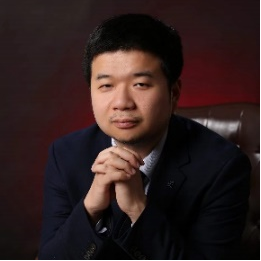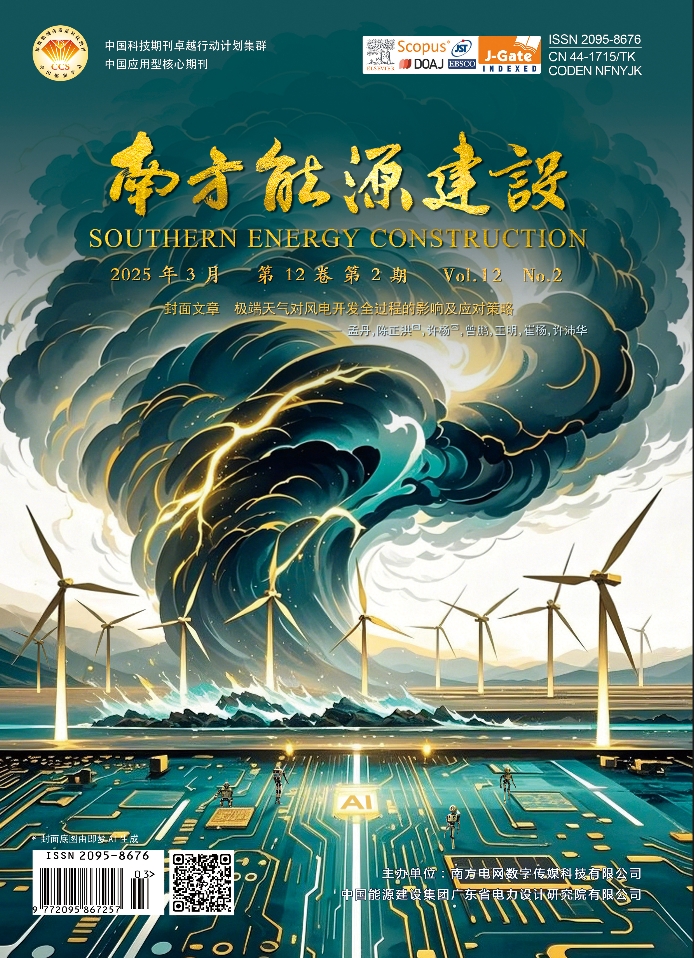Background:
Hydrogen energy is a secondary energy that is abundantly available, green, and low-carbon, with widespread applications. It is gradually becoming one of the important carriers for the global energy transition. In March 2022, China's authorities released a medium and long-term plan on the development of hydrogen energy, which clearly states that hydrogen energy is an important component of the future national energy system for the first time and determines that renewable energy-based hydrogen production is the main direction of development. The "2024 Government Work Report" proposes to "step up development of hydrogen power, new materials, innovative drugs, and other cutting-edge sectors." Hydrogen energy is included in the Government Work Report as a cutting-edge emerging industry for the first time. At present, China's hydrogen energy and fuel cell sectors are entering a new period of rapid growth. China is the largest hydrogen production country, with an annual hydrogen production capacity of 33 million tons and a planned green hydrogen scale of more than 1 million tons. It has a good industrial foundation.
With the accelerating construction of large bases in desert, Gobi, and wilderness areas and the continuous development of high-capacity offshore wind power bases, demonstration projects for renewable energy-based hydrogen production and the application scenarios of hydrogen storage in renewable energy consumption and grid peak regulation have been carried out in areas affluent in wind, solar, and hydropower resources. The typical cases include the 200 MW New Energy Hydrogen Production Demonstration Project in Damao Banner of Baotou by Huadian Heavy Industries and the Mingyang Qingzhou IV integrated project of "offshore wind power + marine ranching + seawater hydrogen production". These demonstration projects provide replicable and scalable models for building a zero-carbon, low-cost, and reliable green hydrogen supply system in China.
To further explore and develop a new integrated application model of "wind-solar power generation + hydrogen energy storage", promote the construction of a clean, low-carbon, and low-cost diversified hydrogen production system, and discuss the technological progress and hydrogen energy application scenarios for large-scale hydrogen production from new energy sources, Southern Energy Construction (CiteScore 0.7, CNKI JIF=1.236, core Chinese academic journal of RCCSE), which is included by China Association for Science and Technology as a high-quality science and technology journal and bilingual journal and by Elsevier Scopus has specially invited the following professors and researchers. They are Lin Jin, Associate Professor at the Department of Electrical Engineering, Tsinghua University, and He Mingzhi, Professor at the College of Electrical Engineering, Sichuan University, as the Contributing Editors-in-Chief. Li Jiarong, Li Jiarong, a postdoctoral fellow at the John A. Paulson School of Engineering and Applied Sciences, Harvard University, Qiu Yiwei, Associate Researcher at the College of Electrical Engineering, Sichuan University, Luo Zhibin, Senior Engineer at the Hydrogen Energy Technology Center, China Energy Engineering Group Guangdong Electric Power Design Institute Co., Ltd., Gao Xiaotian, Associate Researcher at the School of Chemistry and Chemical Engineering, Beijing Institute of Technology, and Cheng Peng, Associate Researcher at the Energy and Power Innovation Research Institute, North China Electric Power University, as the Guest Editors. They will jointly organize the special issue of "Large-scale Renewable Energy Hydrogen Production Technologies" for 2025. This special issue will provide a unique opportunity to present the extensive research on this topic carried out in China.
Contributing Editor-in-Chief:
| Lin Jin, Associate Professor and Doctoral Supervisor at the Department of Electrical Engineering, Tsinghua University. Director of Tsinghua Sichuan Energy Internet Research Institute. He is mainly engaged in the research of high-temperature electric hydrogen production, electric hydrogen coupling systems, and smart hydrogen energy. He was selected for the Changjiang Scholars Program, Beijing Science and Technology New Star Program, and Sichuan Thousand Talents Program. He has undertaken and participated in the research of many national key R&D programs and projects supported by the National Natural Science Foundation of China, issued more than 80 SCI/EI papers, and won the Second Prize of the National Science and Technology Progress Award in 2020. |
| He Mingzhi, Professor and Doctoral Supervisor at the College of Electrical Engineering, Sichuan University, National Leading Talent in Science and Technology, Expert with the special allowance of the State Council, Beijing Candidate for "Hundred-Thousand-Ten Thousand Project", Model Worker of Beijing, Beijing Science and Technology New Star, and Head of Power Electronic Conversion and Control Team. He is mainly engaged in the research of high-power power electronic systems, electrolysis hydrogen production systems, etc. |
Guest Editor:
| Li Jiarong, a postdoctoral fellow at the John A. Paulson School of Engineering and Applied Sciences, Harvard University. Her research focuses on energy management of electric hydrogen production systems, electric hydrogen coupling planning and assessment, and green electrochemical technologies. She has published over 20 SCI/EI papers, contributed to consulting projects for government departments and international organizations, including the National Development and Reform Commission and the International Energy Agency, and authored 1 think tank report on energy. |
| Qiu Yiwei, Associate Researcher and Doctoral Supervisor at the College of Electrical Engineering, Sichuan University, and a distinguished member of the university's "Double Hundred Talents Plan". He is primarily engaged in research on power-hydrogen conversion systems and grid access. He has undertaken 2 projects supported by the National Natural Science Foundation of China and 1 sub-project under the National Key R&D Program. He has been selected for the 8th "Young Elite Scientists Sponsorship Program" by the Chinese Society for Electrical Engineering and Sichuan's "Tianfu Emei Plan". |
| Luo Zhibin, Deputy Director and Senior Engineer at the Hydrogen Energy Technology Center, China Energy Engineering Group Guangdong Electric Power Design Institute Co., Ltd. He primarily focuses on the research, development, and industrialization of hydrogen energy technology. His research areas include new energy hydrogen production, large-scale hydrogen storage and transportation, hydrogen-based fuels, and electrofuels. He was awarded the 2018 Sino-German (CSC-DAAD) Postdoctoral Scholarship and received funding in the 68th batch from the China Postdoctoral Science Foundation. He has also published over 20 SCI papers. |
| Gao Xiaotian, Associate Researcher and Master Supervisor at the School of Chemistry and Chemical Engineering, Beijing Institute of Technology. He is mainly engaged in research on synthesis, preparation, and interface regulation of novel energy materials, performance optimization of next-generation ion batteries, and application of hydrogen energy and energy storage technology within new energy systems. He has led 1 project funded by the China Postdoctoral Science Foundation and participated in 2 projects supported by the National Natural Science Foundation of China. He has published more than 10 academic papers as the first/corresponding author and secured 2 patents. |
| Cheng Peng, Associate Researcher and Master Supervisor of the Energy and Power Innovation Research Institute, North China Electric Power University. He primarily focuses on researching the analysis of new energy grid integration, converter control, and the self-consistent integration and control of transportation energy systems. He has presided over 1 project and 1 sub-project under the National Key R&D Program, as well as 1 project funded by the National Natural Science Foundation of China. He has published over 30 journal papers indexed by SCI/EI as either the first or corresponding author and obtained 7 authorized invention patents as the primary inventor. Additionally, he has contributed to the development of 1 national standard and 2 industrial standards. |
Columns and Directions
Column 1: Outlook and Overview
(1) Current situation, development prospects, and policy interpretation of hydrogen energy and fuel cell industry chain
(2) Current situation and development prospects of hydrogen production from fossil fuels and water electrolysis
(3) Development status and challenges of the hydrogen energy infrastructure industry at home and abroad
(4) Prevention and control of safety risks such as leakage/diffusion/explosion in the hydrogen energy system;
Column 2: Hydrogen Energy Economy, Environment, and Policy Management
(1) Research on the economic feasibility of hydrogen production
(2) Research on the economic feasibility of hydrogen storage and transportation
(3) Research on hydrogen energy policies and standards interpretation
(4) Research on the development path of the hydrogen energy industry
(5) Technical and economic optimization of the power-hydrogen coupling system
Column 3: Hydrogen Energy Preparation, Storage and Transportation Technologies
(1) Hydrogen production technologies: technologies for producing hydrogen from natural gas, coal, chemical by-products, renewable energy sources (solar, wind, and biomass), nuclear energy, electrolysis, photolysis, and sea water.
(2) Hydrogen storage technologies: technologies for high-pressure gaseous hydrogen storage, cryogenic liquid hydrogen storage, organic liquid hydrogen storage and solid material hydrogen storage, hydrogen pipelines, compressed hydrogen, liquefied hydrogen, liquid organic hydrogen carriers, metal alloy hydrogen storage, etc.
(3) Hydrogen energy transportation technologies: technologies for hydrogen pipelines, compressed hydrogen, liquefied hydrogen, liquid organic hydrogen carriers, metal alloy hydrogen storage, etc.
Column 4: Comprehensive Utilization of Hydrogen Energy
(1) Prospective research on the comprehensive utilization of green hydrogen;
(2) Research on hydrogen-based power generation technologies and their application scenarios, such as energy islands and fuel cells;
(3) Modeling, control, and optimization of hydrogen-related facilities and their integration with the new power system;
(4) Progress in practical applications of the comprehensive utilization of green hydrogen.
Important Time Nodes
Deadline for submission: March 10, 2025
Deadline for acceptance: March 30, 2025
Deadline for the special issue: May 30, 2025
Ways of Submission and Contact
Please download the paper template on the contribution page of our official website and submit your paper online. For the Type of Contributions, please select the "2025 Special Issue on Large-scale New Energy Hydrogen Production Technologies" in "Special Contributions" and click "Submit" after completing all steps. An e-mail will be sent to your mailbox notifying you that the contribution has been successful. All contributions will be peer-reviewed in strict accordance with international practices and the journal review process. The final contributions for publication are determined by the Editorial Office. The accepted papers will be first published on China National Knowledge Infrastructure (CNKI) and then submitted to Scopus, DOAJ, etc., for inclusion after formal publication. For any questions about submission, please contact:
Contact: Mr. Xu, Mr. Zheng
Tel.: 020-32119015, 020-32116683
Website: https://www.EnergyChina.press/


 Email alert
Email alert RSS
RSS














